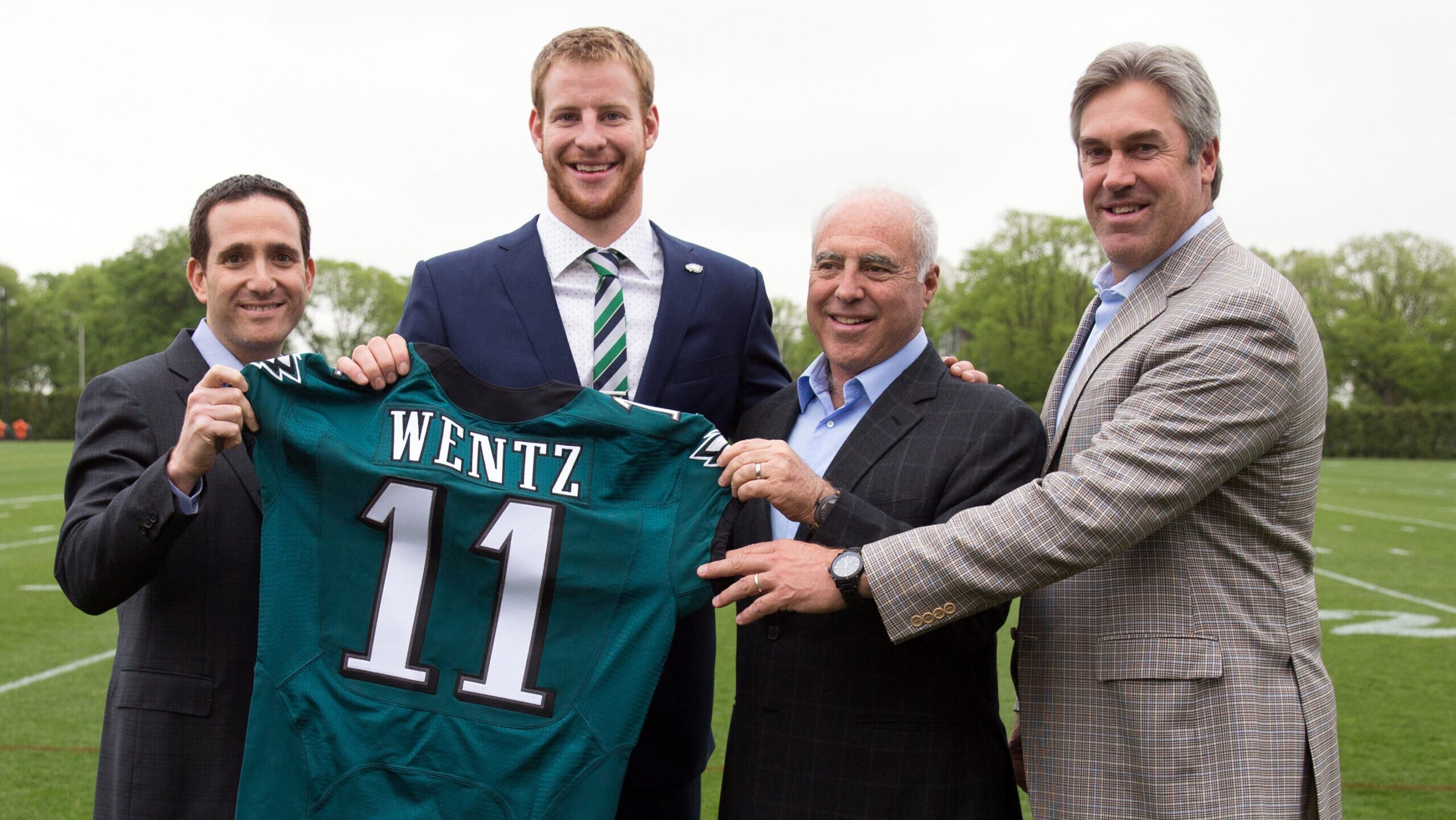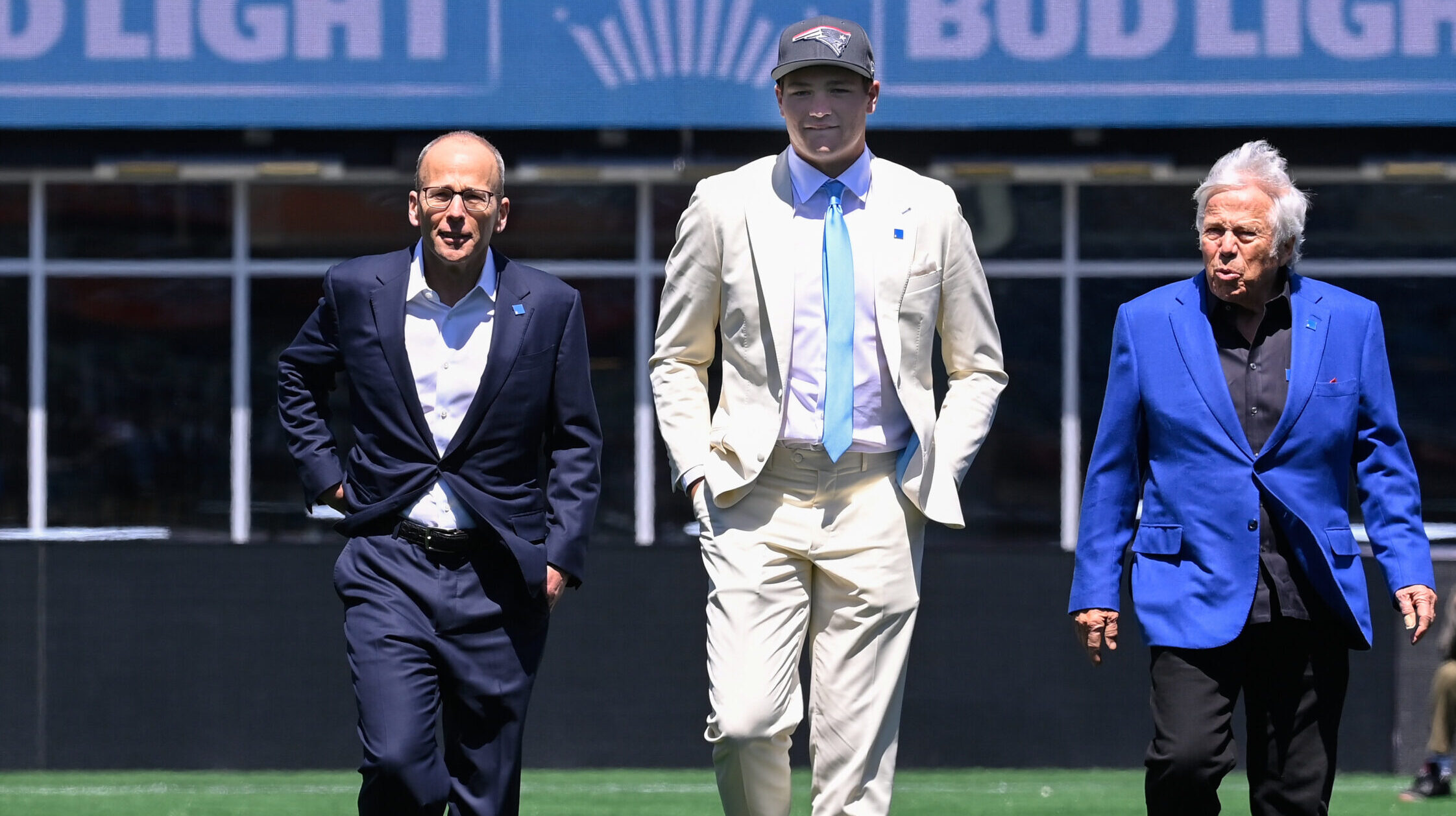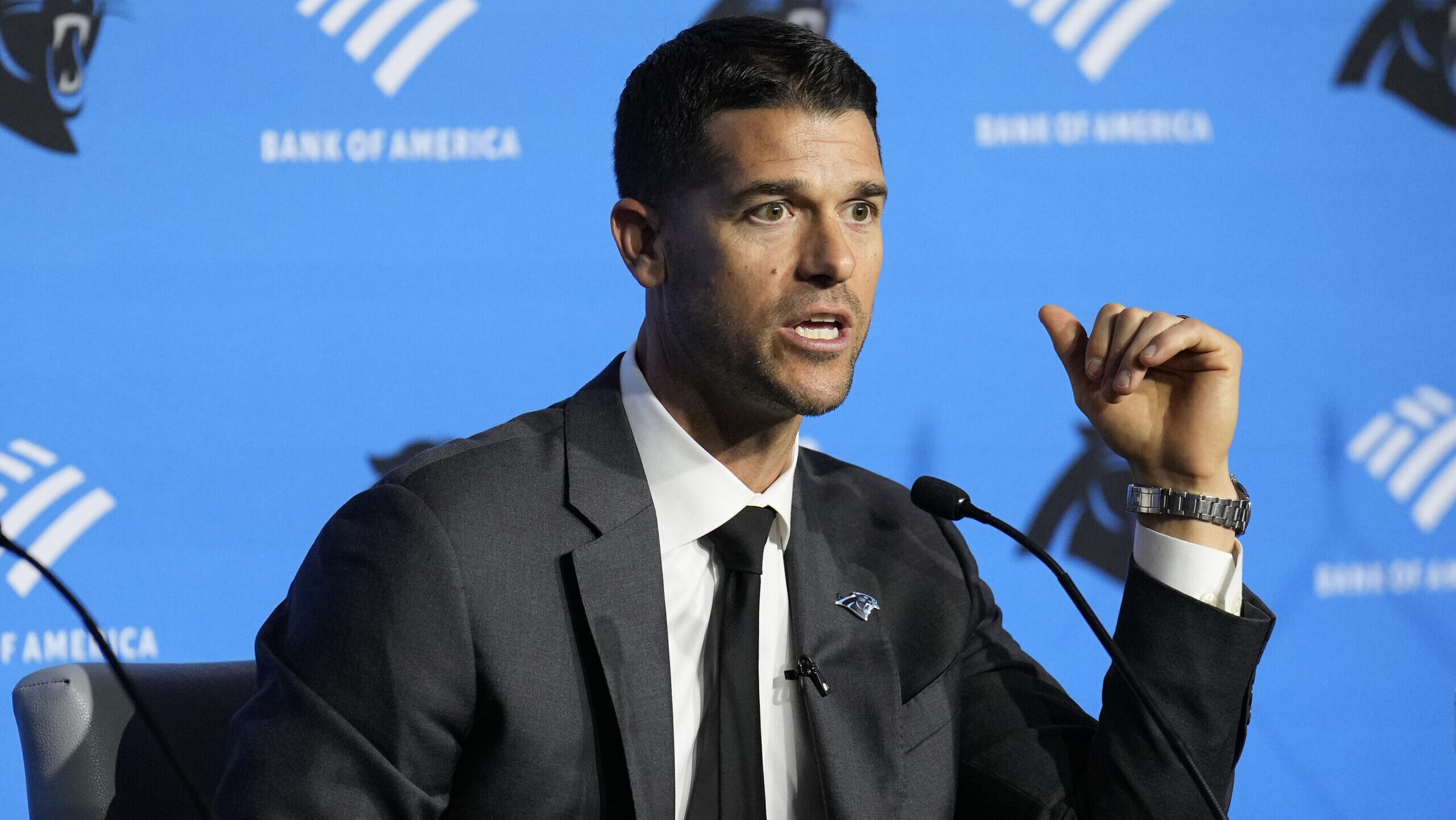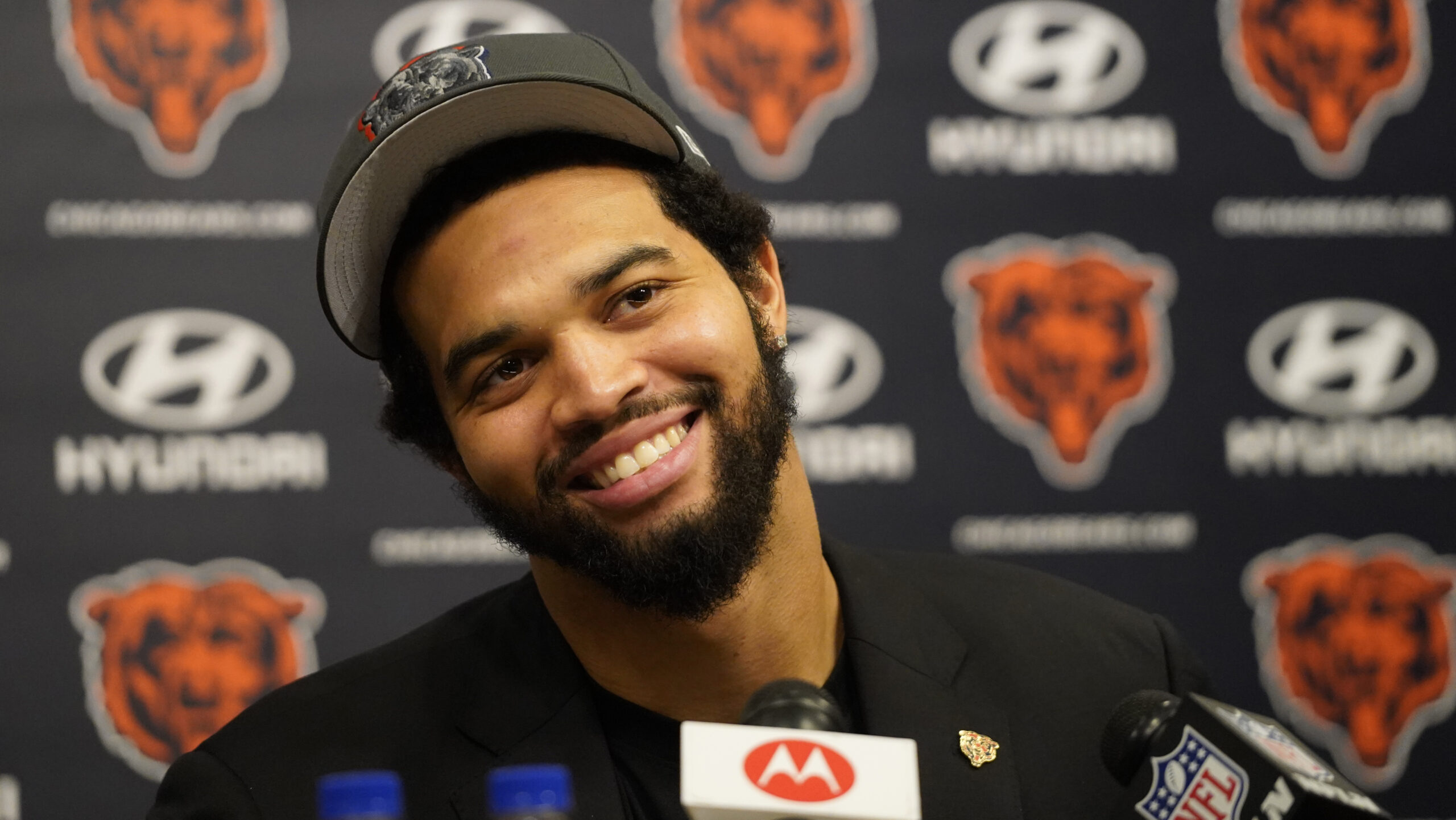Analysis
8/21/23
6 min read
Scouting, Developing NFL Offensive Linemen Is Challenge for Coaches
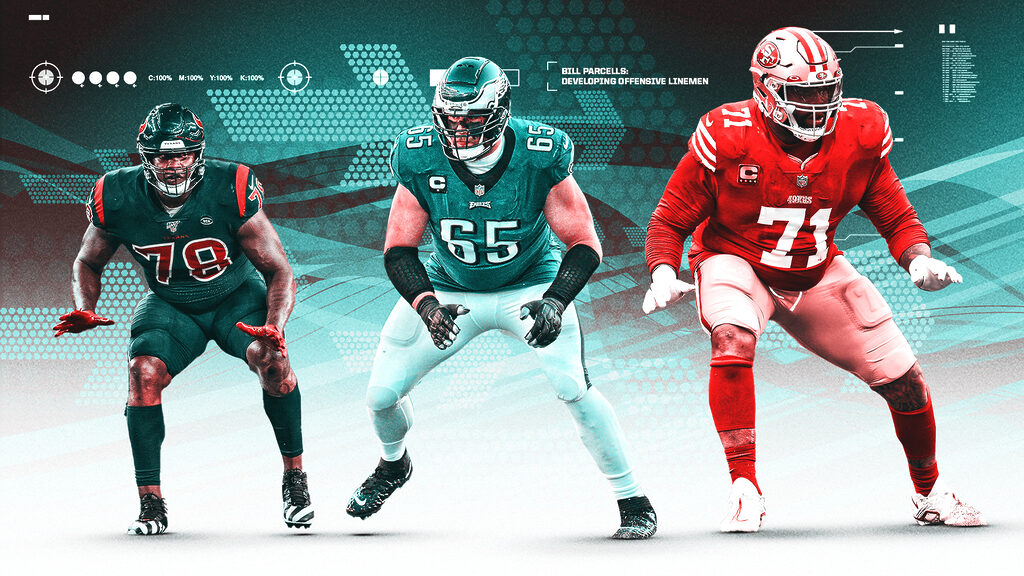
Offensive line is probably the easiest position to scout in football. However, developing those players is more challenging.
Scouting Offensive Linemen
First, let’s discuss the scouting part. When it comes to offensive linemen, people have success scouting them because they show you the things — or most of the things — they’re going to be asked to do in pro football. You see it right there on the film and in practice.
With other positions, you don’t always get that. Defensive backs are playing different coverages. Linebackers aren’t all trained the same way. You’re trying to project those guys into your system, but I always thought you could see it pretty well with offensive linemen.
That’s why when teams pick them in the upper stratosphere of the draft, generally, those are the positions of most success.
In the scouting system in which I grew up, the critical factors for offensive linemen were, in this order: size, strength and a degree of mobility, or else they’ll get outmaneuvered.
The prototypical sizes for tackles are 6-foot-5 to 6-6, 320-plus pounds. Guards should be 6-foot-4, maybe another half-inch height-wise, 315-320 pounds, while centers should be 6-foot-4, 310 pounds.
Doing The Dirty Work
Regarding the intangibles that are critical to this position, offensive linemen have to be the grinders. They have to be willing to pay the price and do the work when nobody’s around, the work that some other skill positions don’t have to do.
By that, I mean the film study, the weight training, the conditioning, the camaraderie. It’s the position with the most players on the team. There are usually nine, maybe 10, with another two on the practice squad, so the group is larger than most other groups.
All the linemen always hung out together on all the teams I coached. They were always in the weight room together. They were always in the film together. So, that camaraderie is important, but it’s also essential for the player to enjoy that process of working together.
Identifying those intangibles comes from scouting and doing your due diligence to discover what kind of guy he is. Talk to the weight coach. Talk to the coaches about if he is willing to do the necessary things to develop into an NFL lineman.
Now, sometimes you see he’s already done them. You can see a guy is down the road pretty well already.
Still, it’s rare when a guy comes into the league completely developed in all those critical areas. Now, there might be one or two that are close, but they seldom have a total comprehension of what needs to be done.
It’s your job as a coach to try to get them there as fast as possible. In most cases, if you do your homework, you know they will be receptive because you’ve watched them long enough to determine they’re the kind of guy that will enjoy this process.
Strength Is Key
With offensive linemen, there’s more emphasis on physical conditioning and strength. You’re emphasizing that with all your players, but it’s vital for these guys.
We were always a big power clean and squat team. Those were the key exercises for the offensive line. Power clean exercises 76 percent of your muscle mass, and it’s an explosive exercise. Squat is another explosive exercise. And that’s what we were trying to get: strength and explosion.
When I was coaching the New York Giants, a Russian gold-medal-winning Olympic weight-lifting coach visited our facility twice.
Our weight coach, Johnny Parker, brought the guy to me. Johnny would go to Russia to study those coaching methods. In his thick accent, that Russian coach would say, “You must learn to create explosion.”
I had a lineman named Bob Kratch, and the coach said, “Mr. Kratch, you are a very powerful man, but you must learn to create explosion.” He got his point across, and our exercises were basically founded on our conversations with him.
Technical Prowess
The key to offensive line play is to be technically precise in run-blocking and pass protection. I used to tell offensive linemen something I learned from John Sandusky, the former offensive line coach for Don Shula in Miami.
One time, I went to lunch with John at the Senior Bowl just to pick his brain. I said, “John if you could just tell your offensive linemen one thing about pass protection, what would it be?” He didn’t even wait a second. He didn’t even deliberate.
John just said, “Get exactly in front of the guy.” You don’t set up off the side of your shoulder. You must be in the diametric center of the player when you take your pass set. That was a form of technical precision.
Particularly with offensive linemen, I was on their case more about technical procedure, working as a unit, and understanding the concepts of the plays and the protections we were using because I feel this is really the vital group.
Iron Sharpens Iron
I don’t know whether all coaches feel that way, but I did. I was a defensive coach all my life, and when I went up against a strong offensive line, I always had to prepare for it. If you let them get the upper hand on you, they can make you lose your will.
That was one of the things I always preached to my offensive line: “You’ve got to make them lose their will to compete.” Then, if you happen to have defensive players or some that match up favorably with some of the players they’ll be playing against, that’s the absolute best thing.
Now, a good example. I had a tackle with the Giants from Michigan, one of my best players ever, named Jumbo Elliott. When he first came into the league, he was blocking Lawrence Taylor pretty much every day in practice.
That helped Jumbo against the other speed and power rushers. Of course, Taylor worked with him and tried to speed up Jumbo's learning curve because we both knew he would play early.
Jumbo was an intelligent player, and he learned a lot from Taylor. Not only that but as Taylor went on in his career, Jumbo made him better because he was a big, strong and physical guy.
I always felt if you had a quality, tough offensive line, it would permeate itself through the whole team. A defensive lineman will have to improve against those guys because you’re working against them daily.
If they’re the type of guy I’m referencing, they will improve the defensive front and make you better as a team.
As told to Vic Carucci.
Bill Parcells is a former NFL head coach and executive whose career in football spanned five decades. He won two Super Bowls as the coach of the New York Giants and a pair of NFL Coach of the Year Awards.



